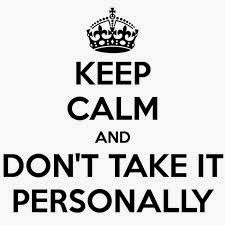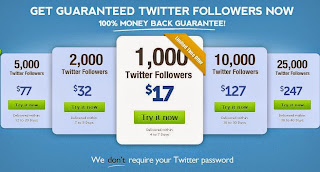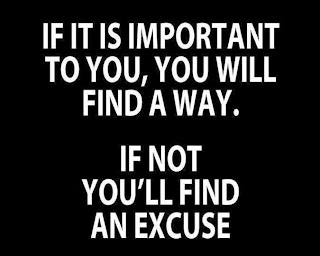Twyla Garrett, CBM, CHS III is a serial entrepreneur, professional speaker, and founder of IME Inc. Her Flagship company specializes in Homeland Security.
Tuesday, September 30, 2014
Communicating During An Emergency
1. Know that "one size does NOT fit all" when it comes to forms. It is very frustrating to have people write down their issues during a disaster, especially if they're seeking relief. Mistakes get made on the form, people tend to be so bogged down with worry that they overlook crucial information, etc. When you have someone assessing people for assistance, make sure you have an advocate to review every single form with them. Information may be needed or there may be extenuating circumstances that are outside of the forms' perimeters.
2. Don't skimp on technology upgrades. Cutting corners to save a few, or a few thousand, dollars is a mistake! Why? During an emergency the technology upgrades could provide quicker responses, access to vital information, link up with systems that can obtain relief, and so much more. Not buying the proper software, or the upgrades, for the sake of saving a dollar is irresponsible and can slow down communication efforts.
3. Seek out social media to help you communicate vital information. You might be asking yourself,"what if all cell phones are out?" Well, that could be- but what if only some of them are out? Other people will still see the information on social media and it will carry. Social media is a great tool. Not using it during an emergency is a major mistake - just consider the many benefits the city of Boston gained out of social media when tracking the marathon bombers!
I hope this information helps. If you have questions, please contact me directly. I'm always available to talk- by email, phone, or Twitter.
Twyla N. Garrett
Monday, September 29, 2014
America’s PrepareAthon! Campaign

The Federal Emergency Management Administration (FEMA) is encouraging individuals, families, workplaces, schools and organizations across the nation to take part in America’s PrepareAthon!, a national day of action that will take place tomorrow, September 30th. America’s PrepareAthon! is a community-based campaign to increase emergency preparedness and resilience through participation in hazard-specific drills, group discussions and exercises every fall and spring.
If you don't have an emergency management plan, you can create one at Ready.gov. As many of you already know, I have composed a book on the topic of Homeland Security called Homeland Security; A Comprehensive Guide for All. You can buy the eBook version of it my clicking here.
Before you buy the book, however, check out these three simple tips for creating an emergency management plan for your family;
1. Make sure you have one emergency kit for every member of your family. Each kit should include enough water for a week, nonperishable food for a week, $200 dollars in cash, a first aid, back up prescriptions, 2 medical masks, a knife, flashlight, a lighter, a set of battery powered walkie talkies, and a battery-powered radio on hand (with a set of extra batteries). Also, make sure the written down phone numbers of your relatives and neighbors is in the kit. Too often, we depend on our cell phones to keep our contacts. However, in the event that your phone is missing or not working, it is good to have these numbers on paper.
2. Set up multiple meeting spots. Your designated meeting spot may not be accessible, so it is important to have two alternative spots just in case.
3. Set up a Google Alert for your city PLUS the word "emergency." This is more preventative than anything else, but these daily alerts will keep you informed on issues and threats in the area so you can further adjust your lifestyle and educate yourself on pending issues.
Until next time,
Twyla N. Garrett
Friday, September 26, 2014
Successful Habits in Business
The first habit is being able to prioritize many tasks quickly and delegate certain items to the people I trust. I can't run every aspect of my company all of the time. Being able to prioritize and delegate is a habit that helps me run my company and I rely upon it daily.
My other habit is PMA, which means Positive Mental Attitude. You can't dive into any project or business relationship being negative but expecting great results. I try to have a great outlook on life and in business all of the time, even when I know I shouldn't. Being positive can help you combat stress and make smarter decisions when it comes to business. I don't know any cutthroat business owners who have long-lasting relationships in business or in their personal lives, which is a shame. You can be successful without being ruthless or negative.
My habits work for me. This doesn't mean they will work for you, although there is no negative to being positive! Make sure you find what works for you and make it a daily habit if you are truly seeking success.
Until Monday,
Twyla N. Garrett
Thursday, September 25, 2014
1 Valuable Life Lesson for Business

Someone recently asked me if I had a valuable life lesson that translated to business growth. I do! I wanted to share it on the blog today to help many people understand why I brand my company, IME, as "the company that cares."
My mantra and life lesson is to take everything personally. I hate when people say, "it's not personal, it's business." You are your business as an entrepreneur, therefore everything is personal. If you don't treat everything you do in life and business with a personal investment, what good is it? It you are personally invested in something, you tend to take it more serious. Business means money. Business means your reputation. So, why wouldn't you take it serious?
The most valuable life lesson I have that can translate to business is not taking one specific business deal personally. I had viewed a deal as not "good enough" for my standards. It was just business, not an opportunity. So, I didn't take it personally. I missed out on a great opportunity because I treated the pitch as business. Had I treated it like a personal investment, I probably would have gave it more consideration and would be reaping those rewards today.
My point here is to take everything personally and act from the heart- even in business!
Until next time,
Twyla N. Garrett
Wednesday, September 24, 2014
Website Design & Marketing
1. Know your target audience and content requirements before selecting a design. If you are a technical company with a lot of content then consider white papers to prove your point, and share your data, without clogging up the real estate of your site.
2. Discuss ownership, budget, timeline, and scope of work with your design team. Make sure you understand the amount of technical hours required to translate a spec design into a live action design. Also, ask if you will have access to the back-end of the website and if additional charges will be implemented.
3. Figure out if your spec out is original. If your designer is using a WordPress website or anything else that is template-based, this means someone else has your website design- even if you change the colors or font. This is not OK for showing how innovative and original your company is. Make sure the design spec is 100% original by having this stated in writing.
4. Make sure you provide all edits to the return spec or soft-launch to the design team before coding. The actual coding of an original website is tedious. Changing the size of font on one sentence can be a billable hour so ensure you get as many edits in to the designer post launch date.
5. Too many clickable options. From a consumer perspective, this is a major mistake. Too many tabs, too many links- too much. Clients want simple directions and clear service options. Don't make people dig to find information. Why? Because they won't, they will move on.
6. No call to action on the front page. I could never understand why one would have a website without a call to action on the front page. Have your clients contact you ASAP, or at least make it easy for them to do so after they finish exploring the website. They could always revisit the main page, but they will not if there is no call to action. So, put a contact form or incentive-based offer right smack in the front of your website.
7. Interactive options. Live chat apps, online scheduling, online uploads for RFP requests- these are all pretty standard elements of today's websites. The same goes for video tutorials or company biographies. If you are missing these elements, you are already behind your competition no matter how clean or nice your website is.
I hope this information helps you create or redesign your website.
Until tomorrow,
Twyla N. Garrett
Tuesday, September 23, 2014
Money Mistakes
Most business owners would love to have a silent investor backing them. This, however, isn't possible for many companies because not all business ideas are scalable. If you watch the show Shark Tank on ABC, you know that there are plenty of great companies and ideas floating around- but that doesn't mean an investor is ready to jump on board. So, to avoid making a major money mistake when it comes to obtaining an investor, make sure you are presenting a scalable company.
Another investor pitch mistake is putting to much value on your company and not presenting actual numbers and verifiable growth sources. Saying a company is worth a million dollars is very different than showing that it is worth a million dollars. Asking for too much money based on the amount of equity you are willing to give up is a red flag to investors. After all, they have the cash and can open up a competing company and maintain all equity and profits. You have to prove your value, not guest-esitmate it!
I hope these two tips have been helpful. Remember, the next time you ask for money don't make the two most common mistakes mentioned above.
Until tomorrow,
Twyla N. Garrett
Monday, September 22, 2014
Brilliant Investment Moves
So, all this said, I figured I would offer a very basic lesson in investing. You need $100 to execute this practice, but it will teach you a valuable lesson. With your $100, buy one share of a stock market Exchange-Traded Fund (ETF). I suggest you Open an account with TD Ameritrade. Opt into the commission-free ETF program. Buy one share of the Vanguard Total World Stock ETF (VT). This means you are buying into a pool of companies (about 5,000) from around the world.
Now what? Wait. You can loose money, but you can gain money. The key is to focus on the numbers and understand how commerce truly works by using your own money. Worst case scenario is you lose $100 dollars. Best case scenario, you grow that same $100 dollars and learn the balance between owning a business and investing in a company.
Until tomorrow,
Twyla Garrett
Friday, September 19, 2014
Sales Emails -101
A proposal email is different from the formal sales proposal written in response to an official request for proposal. I discuss formal sales proposals in "How to Write an Executive Summary."
A proposal email is a summary of the discussions and dialogues that you've had with a potential customer and a written, explicit statement of the business arrangements you've discussed.
You write a proposal email after you've come to a basic agreement with the customer about what you're providing and what the prospective customer will pay. The proposal email has the following structure:
Statement of gratitude (one sentence)
Problem definition and financial impact (one or two sentences)
Desired outcome (one or two sentences)
Proposed solution (two to five sentences)
Proposed price (one sentence)
Risk reduction (one or two sentences)
Next step (one sentence)
For example:
John,
First off, I'd like to thank you for the time you've spent helping me understand your needs. (statement of gratitude)
As I understand it, your service technicians are spending several hours a day driving from job to job, which is costing your company $1 million in lost revenue. (problem definition and financial impact)
You would like to reduce driving time so that your staff of technicians can service more customers. (desired outcome)
As we discussed, our OptiRout system will generate a more efficient driving itinerary, resulting in an ability to service 10 to 20 percent more customers. (proposed solution)
As you know, the base price for our product is $10,000, with ongoing support costs of $1,000 a year. This includes customizing the system to match the driving conditions in your geographical area. (proposed price)
Because of the benefits of more efficient routing, you should achieve return on investment within one month of installation. (risk reduction)
We can begin work as soon as I receive your go-ahead via email. (next step)
Mary
For complex business arrangements, you may also need to create a "letter of agreement" that specifies detailed terms. If this is the case, the next step in the proposal email would be the go-ahead for you to create the letter of agreement. I'll discuss those in a future post.
As with all business emails, make every sentence as concise as possible. Avoid jargon and biz-blab. Do not provide additional information or attempt to sell something else that hasn't been discussed. Remember: no surprises.
I'm going to repeat: no surprises. While your sales proposal email is technically a "sales document," it's not where you do the selling. You do that while you're having a dialogue (either by telephone or email interchange) with the potential customer.
I've used this template to close the final deal for dozens of projects. It's simple, straightforward, and most important, gets the job done.
Thursday, September 18, 2014
Wasteful Spending & Social Media

I was recently asked if spending money on buying book reviews or social media followers was worth it. My immediate answer was "no"! There is no reason I could ever justify spending money to get numbers or fake reviews for the purpose of promotion. Think about this, who are you promoting to? Buying fake book reviews is the worst thing anyone can do. Here's why, the people buying your book really don't like it. They are getting paid to write nice things. And, while you can have all the fake nice things written about your book, 80% of people buy books on Amazon based on a combination of the cover and the summery- not the reviews!
Buying fake social media followers is also a waste. If you load up your Twitter page with 100,000 followers- it seems impressive, but it doesn't equate to actual engagement - which is the entire point of social media. Think about it like this; I go into a store and I pay everyone in the store a dollar to try my new food product and like my Twitter page. So, the people in the store like me on Twitter with a follow and take a bite out of the food product. Maybe, just maybe, .05% actually buy the food product that day. Now, in two weeks I send out a promotion for that product to the people who followed me on Twitter. Do you think I will have a return on investment from that campaign? Nope! I paid people to be engaged. They actually don't like or care about my product and, chances are, will unfollow me in the near future. So, I just wasted a bunch of dollar bills and my time!
I can't tell you about the clients I see who actually buy promotions on Facebook. Yes, their numbers skyrocket, but they never see an actual conversion when it comes to brand loyalty or actual sales. My point here is that paying to get a customer to like your page or like your book is a simple waste of money. You have better chances of turning a paid event sponsorship into real ROI vs. converting a paid social media lead.
Until tomorrow,
Twyla Garrett
Wednesday, September 17, 2014
In the Business of Excuses

I did a radio show on Monday and we touched briefly on why some people don't follow their dreams. Simply put, I believe many people don't do what they want in life because they are in the business of making excuses. What, you thought I would sugar coat this? Really, c'mon! I don't want to sound harsh or insensitive, but I want to tell the truth. I don't have a magic wand and I certainly didn't grow up with a silver spoon in my mouth. No one from the US Government came to my house, tapped me on the shoulder, and said I was going to be successful. Some people, unfortunately, like to dream big, talk even bigger, and then make up excuse after excuse as to why their dreams didn't come true. Well, boo hoo to those people.
No one is going to reward you today for the work you didn't do yesterday. You have to go after what you want out of life. When you fail, you have to get back up on your feet and try again. There will never be the right set of circumstances to start a business. I had 4k in the bank when I started IME and I had just quit my job with the Government. That's right, 4k- no income coming in- and no client leads. I couldn't make excuses. Instead, I had to make things work. I truly believe this is the difference between those who do and those who talk about doing. Some people make things work, others make excuses.
So, I beg of you today, to ask yourself what side of the fence you are truly on. Do you talk about your dreams a lot or do you execute action plans? Do you happen to lean on excuses vs. lean on reasons why things aren't working out and then develop recovery plans?
I know a woman who is very smart. She is naturally gifted at being both book and street smart. She wanted to start her own marketing company. She went to school to obtain her marketing degree. There is nothing wrong with this, right? Well, then she went to school to get her Master's degree. After this, she wanted to get a communications degree. School became her crutch NOT to open her business, rather talk about it and seem like she was really working on it. After 15 years of intense education, this woman got pregnant. After being home with the baby for two years, she then decided she needed to return to school to brush up on marketing trends in the current time. At this point I asked her if she wasn't a professional student, was she planning on simply teaching marketing vs. opening up a marketing agency. We haven't spoken since....
Don't allow valid excuses to become stagnant reasons for you to not move forward in your life. If you want to open up a business, do it - unless, that is, you are in the business of making excuses.
Until tomorrow,
Twyla N. Garrett
Tuesday, September 16, 2014
Customer Service Wins!!!
First, share clever and appropriate things with your customers. What kinds of things? Well, friendly things. Funny MEMEs, interesting food recipes, concert tickets you can't use, coupons- whatever. Be a sharer and always show your clients that you're looking out for their best interests!
Another thing you can do is offer a rewards program. Keep your customers loyal by doing more than expecting that they will give back. Offer incentives that they want. Point systems are OK, but they can become irritating and more work then a client wants to put into a program. Instead, if a customer buys a service- offer them a cash reward or a gift. Or, even better, don't offer anything. Instead, send something without being asked and without telling the client you are going to do it!
Customer service is a common expectancy within business. However, doing the uncommon and going the extra mile is very important to your success. Think about this as you head into the rest of the week.
Until tomorrow,
Twyla N. Garrett
Monday, September 15, 2014
Twyla Garrett's Interview on Corine La Font's Radio Show!
Friday, September 12, 2014
Don't Fight with Angry Customers
So, how do you deal with an angry customer on social media? First, don't ever right with them. Next, respond in a short and concise manner. Invite the person to email or call you directly so you can further investigate the matter. Don't apologize for anything right away. Instead, focus on being empathetic and address the concern by stating you will investigate the matter. You also have to actually investigate the matter. If your company did something wrong, or not up to par, then you do need to apologize and make it right. Also, if your discover your company didn't do anything wrong, don't state that to the customer. Instead, explain how they could have misunderstood the action and that your company will work to inform customers better.
Make sure you also always draft a response and wait a few hours, if not a day, before responding. You have to make sure your response isn't vile or liable, too. There is no real way to predict every situation from upset customers, but if you use these guidelines to address social media complaints then your company (and its brand) will be better off.
Until Monday,
Twyla N. Garrett
Thursday, September 11, 2014
911 Memorial
Twyla
Wednesday, September 10, 2014
Powerful Emails

I want to talk about writing powerful emails today. I touched briefly on this early in the year, but today I want to get to a bit deeper on how to respond to client emails.
First, never ignore an email. If you don't have time to respond to the questions or concerns, reply with "I've received your email. I will address this shortly, but I want you to know that I am aware of it and I will address it."
If you are responding to a client or potential client's email, read it twice before you send it. You don't want to send an email filled with typos or a tone that can be misinterpreted. Speaking of tone, unless you are friends with the person to whom the email is being sent to- leave emotions out of it. If a client or coworker has made you upset, walk away from the email. Again, reply with "I've received your email. I will address this shortly, but I want you to know that I am aware of it and I will address it," and wait a day or two before you do respond. Letting anger seep into an email is always unprofessional- even if you are provoked.
Don't over communicate, either. If the email chain starts to go past four responses, call the person. You shouldn't use email as a book or main point of communication. If you are starting to reply to emails- again over 4 responses- then a phone call or in-person meeting is in order. Don't allow someone else to drive the email conversation to the point of no return. Pick up a phone or schedule to meet over coffee to talk about the issue on the table.
I hope this information has been helpful. I think we can always use reminders on how to conduct email during such a virtual work space culture.
Until tomorrow,
Twyla Garrett
Tuesday, September 9, 2014
Communication = Sales

There isn't anything you can do to hype up your company that will replace communication. No amount of social media development, beautiful website design, or publicity stunts will lead to actual sales if you, the owner of the company, can't communicate. Internal and external communication leads to sales... period!
Breathing patterns aren't often addressed when dealing with communication. Why? This is the most important thing a great communicator can do. You see, when someone is trying to sell you something and they talk too fast- we tend to feel rushed into a sale and that something may not be on the up and up. So, you see, leading by example through speaking slowly, using correct breathing techniques, will help your staff and clients not only trust you- but buy from you!
Remember, it isn't how fast or slow you speak- it is the content that matters. Some people practice their sales or idea pitches so much that they don't leave room for error or interruptions in the form of client questions. This said, know what you are talking about and practice answers- but never be too canned in a response or a presentation. Don't worry about not making your time in the speech to match cue cards or slides. You need to be more worried about what you are saying and if it is understandable then staying on time or rushing a phone call and/or presentation.
Communication can make or break you and your company. If you are challenged in the area of self-expressions, take a moment to slow down your speech and realize that you're selling content, not the communication form itself.
Until tomorrow,
Twyla N. Garrett
Monday, September 8, 2014
Social Media Mistakes
First, let's talk about your profiles. All of your social media profiles should link to one another and they all need to list your basic biography / boiler plate. Make sure you have both your phone and email contact information visible too. If you have a maiden name or nick name, list them within the confines of your profile's content to ensure searchabilty. Publishing an incomplete social profile is a major mistake and yet it happens a lot.
Pitching products through your social media accounts is also frowned about. Think of using Twitter like a walk down a virtual street. If someone jumped out at you and screamed "buy this product now", you would be annoyed! Instead, if someone walked up to you and said, "Hey, I see you're reading ABC. I loved that book so much that I wrote a more indepth version dedicated to the research of C. Here's some more info. if you want it," the sale would go smoother and you would create a REAL connection.
Finally, don't have an autoresponder do your work for you. Social media is about posting and joining live conversation in present time. I don't know how you can schedule present time two Sundays from now, but I see companies doing this all day long. Post to your own social media accounts or hire a live person to write them (and engage people) for you!
Until tomorrow,
Twyla N. Garrett
Thursday, September 4, 2014
Are You Likable?

I almost fell to the floor with laughter in the lobby of my building today. I was waiting on a client. While waiting, this man was on his cell phone screaming (probably at his wife or partner) that his employees hated him. I wonder why! He kept screaming and screaming, he was getting louder and louder. I started to think "how can you be so smart and yet not understand why you're not likable?"
Business is tough. You often have to be hard as nails, but you don't have to scream or be a jerk most of the time to get your point across or as a way to feel respected by employees. In fact, studies show that nice CEOs tend to have more loyal employees and better retention rates when it comes to turnover. So, what makes a CEO likable? I've come up with a few theories.
First, I think people like honest people. Even if the truth is going to hurt, people rather know where they stand with someone vs. being told one thing and not knowing the truth. Honesty tells the world that the CEO is about transparency and isn't into playing politics, which equates to success.
I also believe people want to be heard. CEOs who take the time to listen to their employees are more likable and respected. Even if you don't agree with what an employee is stating, simply listening validates that their opinion / concerns are heard and this will have a positive result internally.
Finally, work. Yes, work! CEOs who are out of the office "doing lunch" or "golfing" automatically cause resentment among many people. Sure, you need to wine and dine potential clients and business partners, but don't make a habit out of it. Instead, keep the blinds or door to your office open. Let your staff see you working. This will let your staff know that you are involved with the company and it will also keep them more accountable.
Until tomorrow,
Twyla N. Garrett
Wednesday, September 3, 2014
Why You're NOT A Millionaire

I was asked an interesting question over the holiday weekend. A woman told me her story about starting a business. While she had all the right tools and building blocks in place, ten years had gone by and she wasn't even close to breaking the bank - never mind reach her goal to be a millionaire. She asked me why I thought this was. I told her the same things I am sharing here. If you're not reaching your millionaire goal, keep reading....
1. All you think about is money. You can't think of money so much that you stop thinking about strategy or customer service. If you are more concerned about money than your actual product or services, you are going to have many problems.
2. You're not overly helpful. Yes, helpful. This may be the key to success in addition to the key of making yourself a millionaire. You see, the more people you help- the more people will help you. If you help your employees, they will be more loyal. They will have a sense of ownership over your company. They will forever promote it. Same with vendors, people you meet on the street, etc.
3. You're not honest about your progress. If you are unwilling to track your own progress and hear client or peer feedback (and then do something about it), then you are unwilling to make a million dollars. You have to be accountable, you have to be ready for growth. This isn't possible if you don't track your own progress.
To you first million!
Twyla N. Garrett



.jpg)